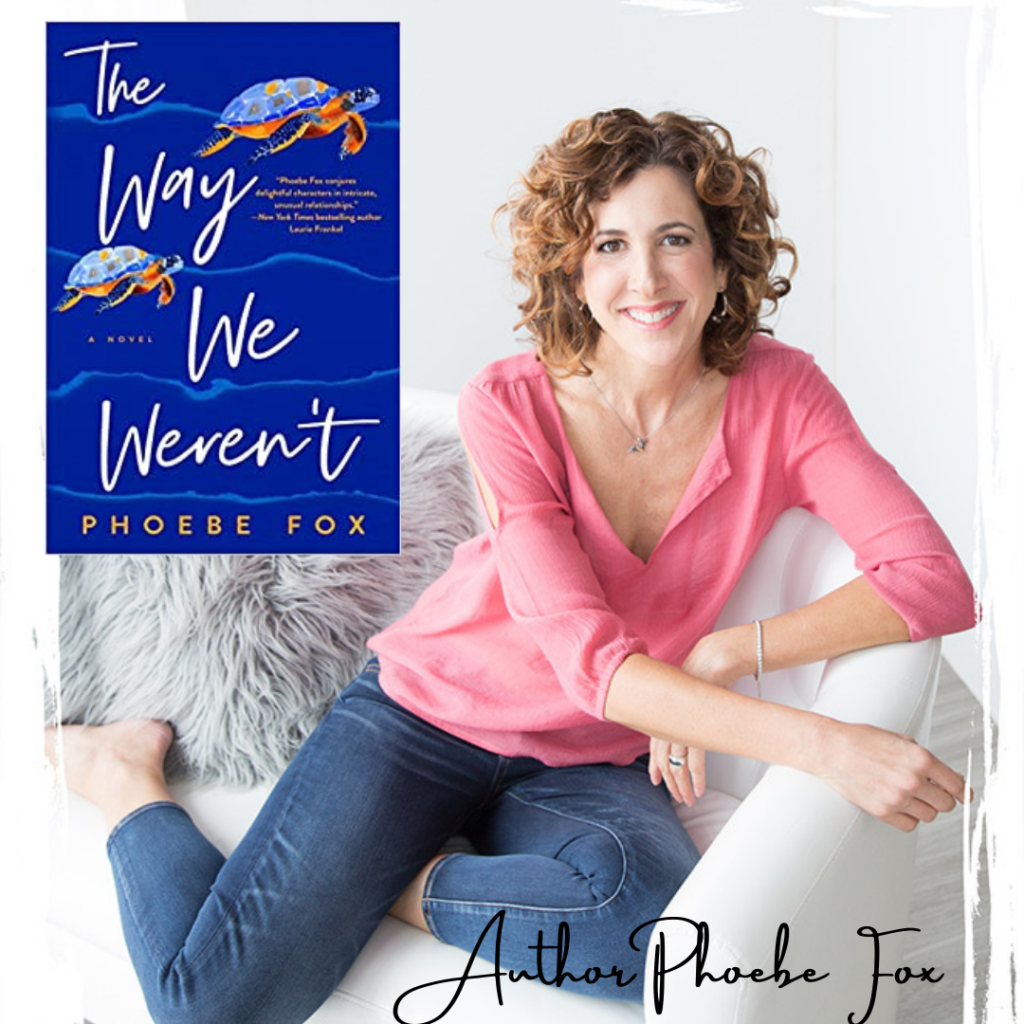
Phoebe Fox is a Texas-based author, editor, and speaker. Her sixth novel, The Way We Weren’t, earned a starred review from Booklist, along with this praise: “This standout novel from Fox is a study in contrasts: tragic yet heartwarming, suspenseful yet comforting.” Sarah Bird, winner of numerous literary awards and author of Daughter of a Daughter of a Queen, says, “The Way We Weren’t is so deeply satisfying on every level that it will continue to resonate with you…An achingly artful portrayal of love lost and love reclaimed.” It’s sharply written and its characters both tug at your heartstrings and prompts smiles.
Phoebe has contributed to multiple publications, including the Huffington Post, Elite Daily, and She Knows. Previously an actor on stage and screen, she’s been suspended from wires as a mall fairy; was accidentally concussed by a blank gun; and hosted a short-lived game show.
She also was kind enough to chat about a range of topics, including how her acting background helps her writing, the art of conversational shoplifting, and how writers need to take control of their careers. Some highlights:
How has your acting background influenced your writing?
The basis of acting is characterization—figuring out who someone is and why they do what they do. It’s the same in writing. Also as an actor, I developed an ear for how people talk, and I love to watch how they move through a setting.
I was struck by how you draw nuanced characters. For example, Marcie’s friends and co-workers at the bar were relatable, heartfelt, and flawed but endearing characters. Any advice on how to accomplish this?
I loved all these characters and they entertained me no end while I was writing them. The key to thinking about characters is that we’re all flawed. We all have the capacity to do great good and possibly great evil. I love exploring why we do what we do and how our choices affect who we become.
Like the guys at the bar. I enjoyed figuring out why they come in every day and shoot the shit.
I used to be an entertainment columnist and talked to the owner of a little bar in Naples, actually called ‘The Little Bar.’ Every night, he’s there, shooting the shit. I asked him why he bought the bar, and he said, “This is what I love to do, so why not make it my livelihood?’ He was the seed of Darla (the bar owner in The Way We Weren’t). She has a captive audience to tell her stories to.
A lot of people come to the beach (most of the story takes place in the beach town of Palmetto Key) and stay, and life becomes one unending day. I wanted to write about these four people who live in the moment. They’re not working toward anything. I couldn’t do it, but there’s something fun and peaceful about those who say, ‘This is all I’m doing, and I’m cool with it.’
As writers and creators, we love to watch people, and use them to create people in our stories. A friend called it “conversational shoplifting.” It’s what writers do—draw inspiration from real people. No one character is a person I know, but I use real people to help form my characters.
Some of your phrasing was so lovely. One example: “…she’d filled the lonely hours of the graveyard shift nobody else wanted by chatting with guests, who lurked in the lobby in the small, quiet hours of the night, fellow restless souls postponing the solitude of an impersonal (if tastefully decorated) hotel room.” Any guidelines for writing beautiful prose?
A couple things: I’m story over prose every time. I don’t consciously try to write beautiful prose. But I hear it as I’m writing: words have a rhythm and music, and I love to hear the music.
I also try to say the exact nuance I’m trying to convey. Language is fascinating; you can find a dozen words that mean something similar, but each with a different nuance.
Any thoughts on who’d play the main characters when The Way We Weren’t is brought to the screen?
For Marcie, Katherine Hahn. (She’s been in many films, including Bad Moms and A Bad Moms’ Christmas.) For Flint, I picture Peter Fondaor Tommy Lee Jones. He has that perfect aura of being gruff, off-putting, and prickly, but you still love him.
What music do you listen to while writing?
None. It’s dead silence or I can’t write. I know some authors publish their playlists, but if I listen to music, it gets me out of my work mind. Music is for leisure.
Any advice you’d offer other writers, and especially those who aren’t as far along?
I used to say persistence; that if you stay in the game, you’ll succeed. I’m going to add that you need to take ownership of your career. So often, the creator has the least control and gains the least benefit from the commoditization of our work. And it can feel like you’re always begging: for an agent, for an editor, for readers.
Stay in touch with what you’re doing and why you’re doing it. Decide what you want your career to look like and try not to define it by external markers that you have no control over.
What are you reading now?
I’ve been on a nonfiction tear. One book is Rest: Why You Get More Done When You Work Less by Alex Soojung-Kim Pang. It’s all about finding ways to pursue your passion without it consuming your life. Four Thousand Weeks: Time Management for Mortals by Oliver Burkeman is about finding balance between working and then stepping away to let your brain noodle ideas. In the industry right now, authors are told to publish and be regular. I’m super Type A but that feels exhausting.